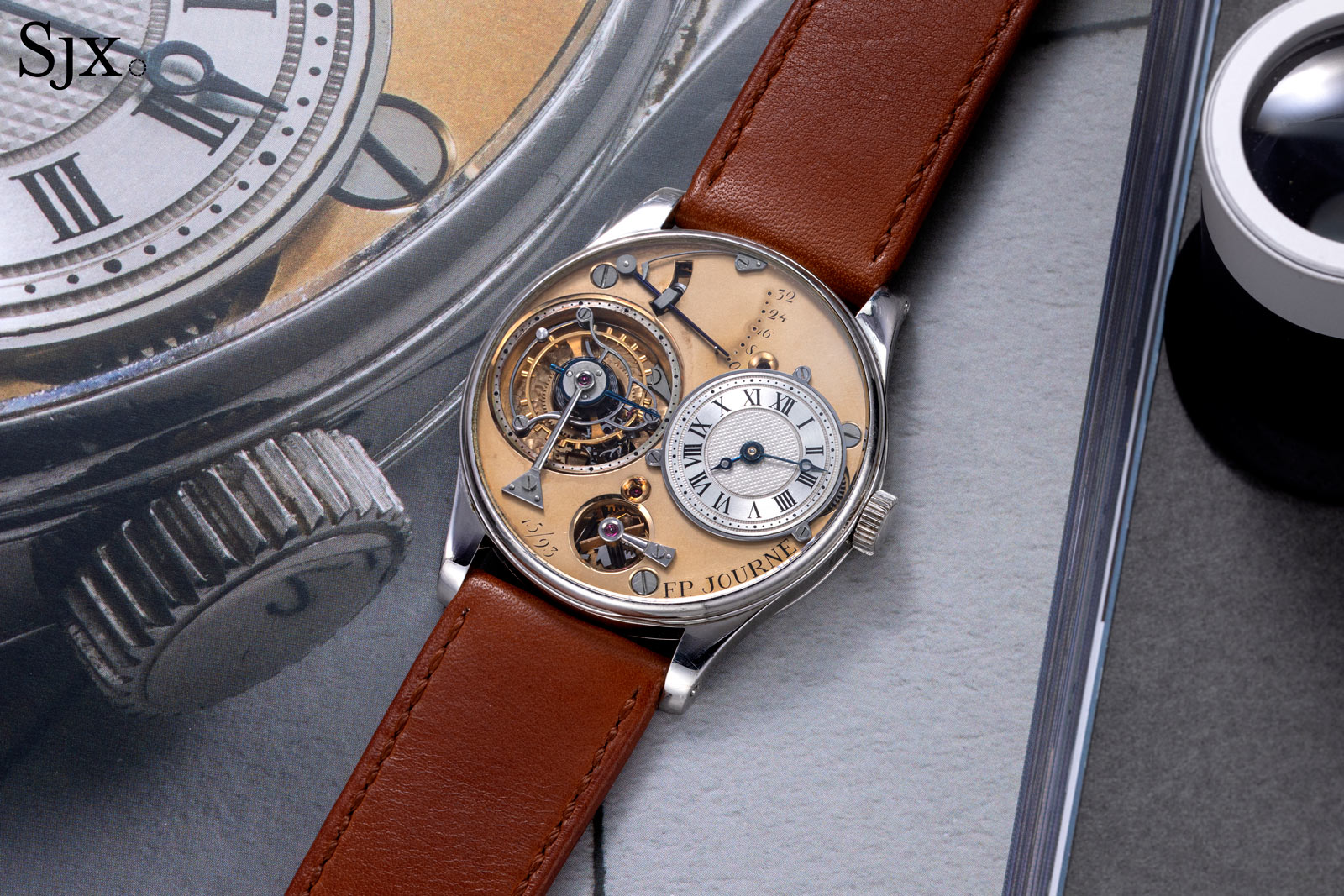In-Depth: F.P. Journe Tourbillon à Remontoir d’Egalité Prototype
An important watch with character.
One of the most significant examples of contemporary watchmaking, the F.P. Journe Tourbillon à Remontoir d’Egalité “15/93” will soon go on the block at Phillips. Consigned by the estate of the original owner – meaning it’s a one-owner watch for over three decades – the “15/93” prototype carries within it the magic of independent watchmaking to a degree that rivals the landmark timepieces like the George Daniels Space Traveller’s Watch.
The history of this tourbillon is well known: it is the second wristwatch made by François-Paul Journe, and the first one he sold. In early 1992 he sold it to a Parisian collector for a price that in hindsight is profoundly ridiculous, but was probably an extraordinary price to pay for a watch like this at the time.
The gentleman who bought it owned it for some 32 years and clearly wore it often. There is no doubt he understood what the watch represented, even years ago before it was valuable, because he retained all of the original documentation that came with the watch, including copies of the technical plans. To the late original owner of this watch: you have my respect and admiration.
“Prototype”
Although I describe this as a prototype, it more accurately one specimen of a small series of hand-made watches. This series formed the template for the later Tourbillon à Remontoir d’Egalité that was produced on a larger scale, albeit only numbering in the dozens, initially by hand and then with more industrial methods when Francois-Paul Journe became a brand.
There are two other watches like this, the first example marked “11/91” that was retained by Mr Journe – arguably the true prototype – and today sits in the manufacture, and the final watch, marked “16/93”, which was sold to another collector.
The numbers refer to the sequence and year of production, so “15/93” is the 15th watch (both wrist and pocket) produced by Mr Journe and completed in 1993. No doubt convinced by the character of “11/91”, the original owner paid for this watch in 1992 and received it a year later.
The template
Looking at “15/93”, it is clear that Mr Journe had a clarity of vision right from the beginning. Mr Journe related to me in the past that his tourbillon wristwatch was inspired by several historical greats that served as his role models, including Abraham-Louis Breguet, Ferdinand Berthoud, and little-known Swiss clockmaker Jost Bürgi.
Their influence in obvious in the complications – Breguet for the tourbillon and Bürgi for the constant force – as well as the styling, which instantly evokes Breguet and Berthoud.
Most of the elements that would later go on to define this brand are in the watch, ranging from the gold dial, off-centre time display, and exposed screws.
The flat, 38 mm case is nearly identical in size to the later examples, though there are several differences, including a prominent step on the bezel, wider lugs, and screwed bars for the strap. The crown too is an ordinary shape, and not the narrow (and impractical) form that the brand would later adopt.
In the same manner the dial has the details that would later define the F.P. Journe aesthetic, but in a raw execution and with interesting details that wouldn’t make it into the serially produced watches.
The time indication is a silvered guilloche register secured by steel ring, while the tourbillon cock is polished steel, just like the later production watches. But the details are different, the steel ring has an angular outline, instead of the fluid silhouette adopted later on.
But the most notable differences is probably the dial, which is not actually a dial. It’s instead the the base plate of the movement.
The base plate and bridges are solid gold, so the yellow gold dial is the underside of the gold base plate, not unlike historical pocket watches. Later watches would have an actual gold dial, but not a visible base plate again until the recent Tourbillon Vertical.
The rounded cock for the remonotir blade would be found on the initial batch of serially produced tourbillon watches
Though Mr Journe migrated to brass bridges in the serially produced Tourbillon Remontoir d’Egalite, he finally returned to an all-gold movement construction in 2004, a feature that has become one of the defining features of the brand.
One of the intriguing details: a stop pin for the power reserve indicator
The tourbillon cage is inspired by Ernest Guinand
Although this is by far the most important F.P. Journe wristwatch to emerge at auction ever, Mr Journe, in his typical manner, has been publicly silent about it, perhaps not to tilt the scales. But he did give the watch a once-over so it has been verified by the maker.
Estimated “in excess of CHF2 million”, the F.P. Journe tourbillon prototype is lot 14 in Reloaded: The Rebirth of Mechanical Watchmaking, 1980-1999 taking place on November 8, 2024 in Geneva at the Hotel President. For more, visit Phillips.com.
Back to top.